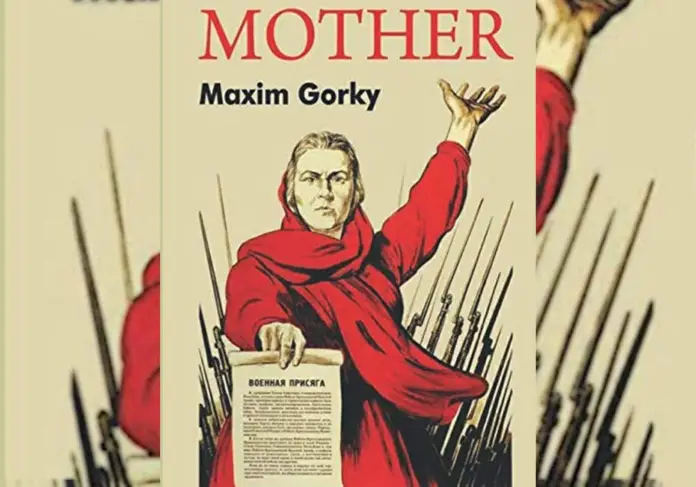By Drushom Baloch
‘The Mother’ is a novel written by Maxim Gorky in 1906 in Russian language for the first time. It was translated into many languages including English. This novel is all about revolutionary factory workers and how their struggle brought revolution in the Russian society as well as working class of the state.
Gorky’s novel focuses on the pre-revolution labour works of Russia. It also concentrates on the role of women in the struggle for Russian labouring class. This novel mainly emphasizes on the demonstration of workers and legal proceedings. It has a huge glance on the socialist problems of Russian society and efforts of working class of 24 hours without getting justice by the government of Russia.
By focusing clearly on Russian pre-revolutionary society, it expressed the active participation of youth groups in social activities against the injustices of the labouring class. Besides this, it verbalized women’s powers and abilities in a great way, depicting how they struggled for a revolutionary society.
‘The Mother’ creates enthusiasm and motivation to struggle for revolutions and fundamental rights. It creates interest because it clearly mentions that there was no difference between men and women sociologically but they could work equally for social, political and economic rights.
The main supporter in this novel, Pelageya Nilovna, is the mother of Pavel Mikhailovich. Pavel is the main hero of this novel and plays a vital role. His mother lived her 20 years of life with misbehaviour and mistreatment from her husband. With the death of Pavel’s father, he, with other teenagers, joined the factory and started sitting with new gatherings. He learned a lot of new things especially about the power of “unit struggle till victory”. He became capable with a strong belief that working labour parties are the main causes of changes in the society. So, they started providing different environments to workers including book culture and study circles. He provided political awareness to all the labour class.
Pavel and his comrades were told to be far away from bad activities and habits. Pavel, however, with his thoughts about socialists, started bringing books to his home which were forbidden by the Russian government. His mother was so upset about the act of her son and she was suspicious that Pavel was a part of the socialist circle.
Everyday, with new violations on factory workers, they were forced to do laboring for 18 hours per day; they were only paid three times meals in return of their services, and were neither paid any salary nor one day rest. Then the working class, with youth socialists such as Pavel, including other members, protested against them in front of the factory continuously for three days. They started distributing pamphlets. Pavel got arrested for actively participating in activities against the unjust rules and regulations. After the arrest of Pavel, the comrades sought her mother to help them in order to release Pavel; the comrades told her mother to take these forbidden leaflets and distribute them in the factory so that authorities may release Pavel.
Finally, through the active participation of his mother in social activities against injustice, Pavel got freedom. From there on, the house of Pavel’s mother became the main center of revolution and she was called comrade by all. This shows the women have given their contribution well for revolution in Russian society.
Besides this, this novel expressed the role of women in the struggle with the labouring class in social activities in order to establish a socialist society and solve the problems of Russian society. This aided in overcoming gender discrimination and replacing capitalism with socialism.







